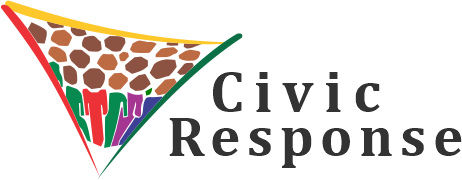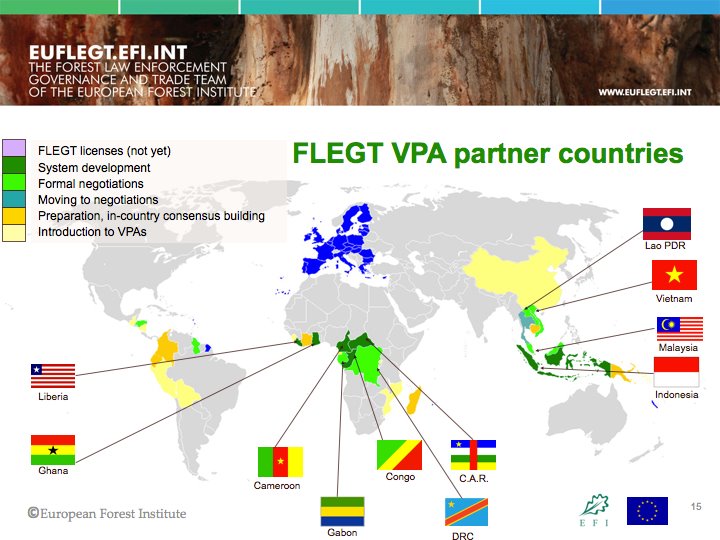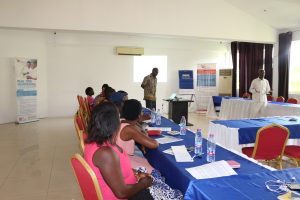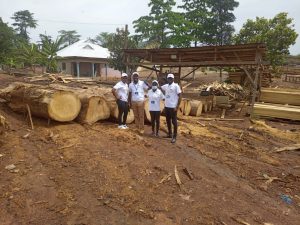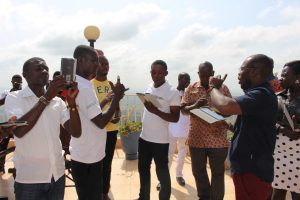8th August, 2017. A team of Ghanaian representatives from the Ministry of Lands & Natural Resources, Forestry Commission, Private Sector and Civil Society have commenced a three-day learning and sharing programme in Indonesia. This is in order for the two countries to share lessons on the FLEGT licensing system.
Ghana concluded VPA negotiations with the European Union in September 2008 and became the first country to sign a VPA in November 2009. The FLEGT-VPA enjoined Ghana to develop a wood tracking system (GWTS) needed for the export of FLEGT licensed timber. The development of the GWTS is complete and needs to go through the final joint auditing with the EU before Ghana is declared ready to export FLEGT licensed timber.
Civil Society and the Ghanaian Government have on various platforms maintained an interest in advancing the governance agenda under the VPA through the promotion of transparency measures. One such opportunity for advancing transparency is the provision of a public portal for pertinent information that will be generated by operation of the Ghana Legality Assurance System, particularly, the Wood Tracking System. In the 8th JMRM, the Ghanaian Government committed to making information from the Ghana Wood Tracking System (GWTS) available to CSOs but the challenge was how to do this. Fortunately, Civic Response has been able to secure funding from the FAO FLEGT Programme to develop a web-interface for the GWTS which will make information publicly accessible to all stakeholders, including the international community.
One critical added value for the GWTS web-interface/public portal is the possibility of lessening the difficulty for accessing information by the international private sector on prospective clients in Ghana. However, this is something that is relatively new to Ghana. Indonesia, on the other hand, through the SVLK has managed to make information easily accessible to the international private sector. It will be recalled that Indonesia became the first country to issue FLEGT licensed timber after its launching event in 2016 and has successfully implemented a wood tracking system (Sistem Verificasi Legalitas Kayu (SVLK)). This has provided the opportunity for Ghana to learn from Indonesia on how it managed to make its SVLK publicly accessible to the international community without compromising on the trust of the local private sector.
The trip is expected to among other things expose the Ghanaian team to how Indonesians have addressed challenges faced during the deployment of the SVLK, especially how red flags raised were addressed and how they have related to the EU Competent Authorities. It is also expected to expose the Ghanaian team to effective ways of deploying the GWTS web-interface/public portal to benefit international private sector as achieved by the Indonesians through their SVLK and Sistem Informasi Legalitas Kayu (SILK) portal. Again, it is expected that the Ghanaian team will learn at first hand the potential impact of FLEGT licence on local private sector, engage with civil society and share lessons on how to improve forest governance and transparency, as well as share thoughts and lessons at the ministerial level on FLEGT licensing.
Over the three days (8th-10th August, 2017), the Ghanaian team will meet with the MOEF and IDN-FLEGT-VPA team, the Indonesian private sector, and civil society. The team will also visit the FLEGT licensing Authority, a timber processing mill, and debrief the MOEF and IDN FLEGT-VPA team.
The trip is part of the Civil Society-led Independent Forest Monitoring (CSIFM) in Ghana Project, which is being implemented by Civic Response through the FAO FLEGT Programme with funding from European Union, the Swedish International Cooperation Agency and the United Kingdom Department of International Development.
By: Jemima Opare-Henaku|Civic Response
